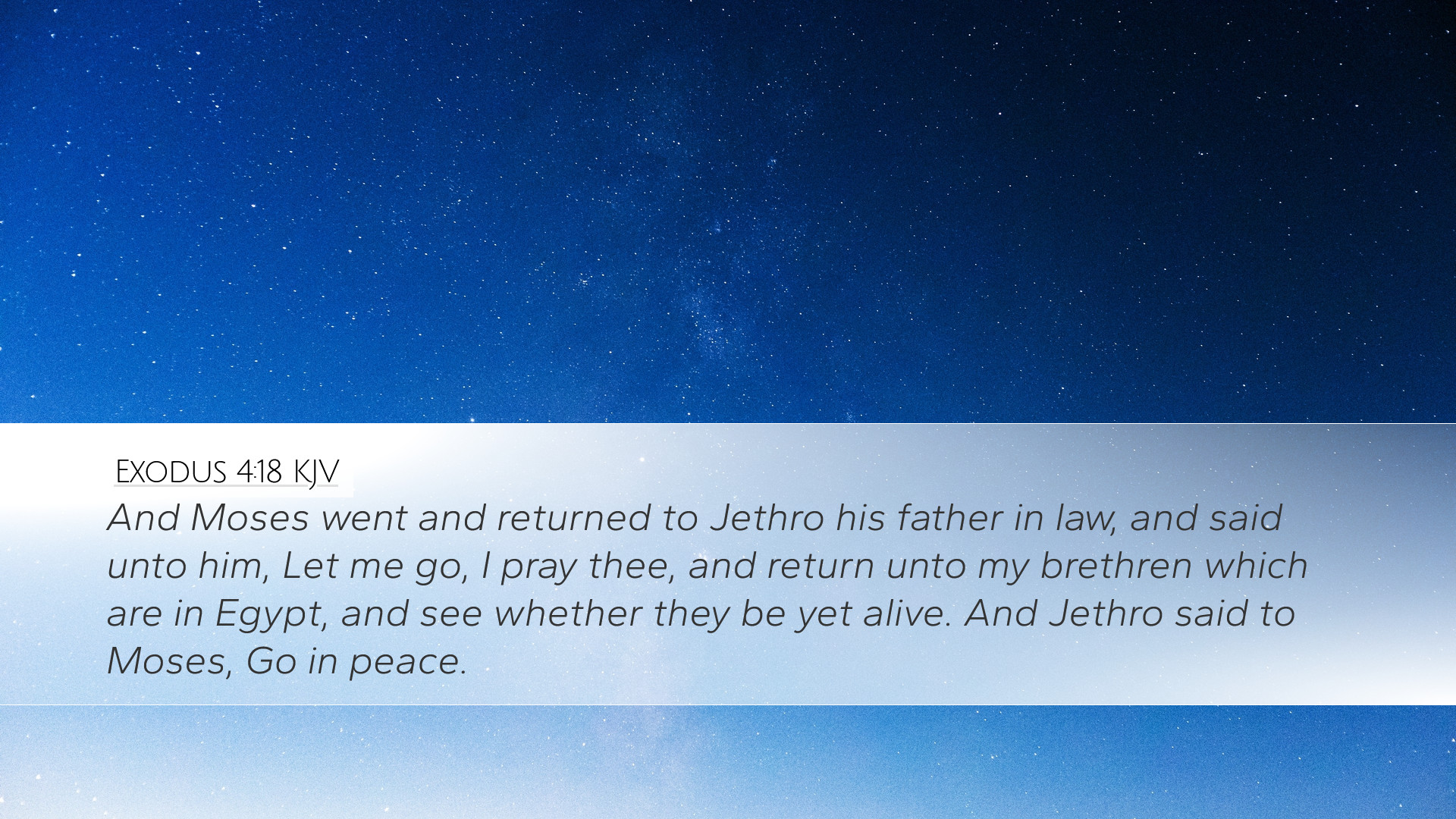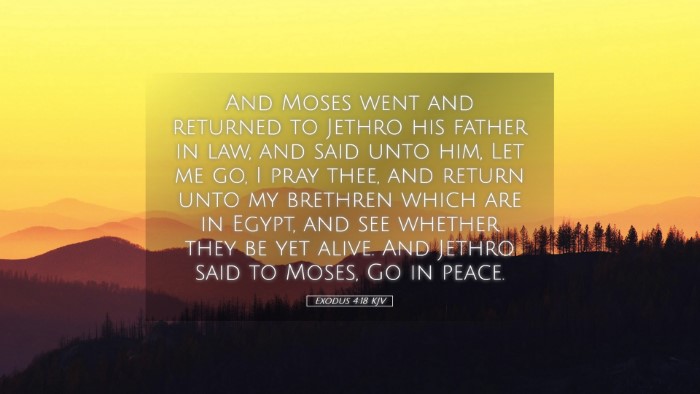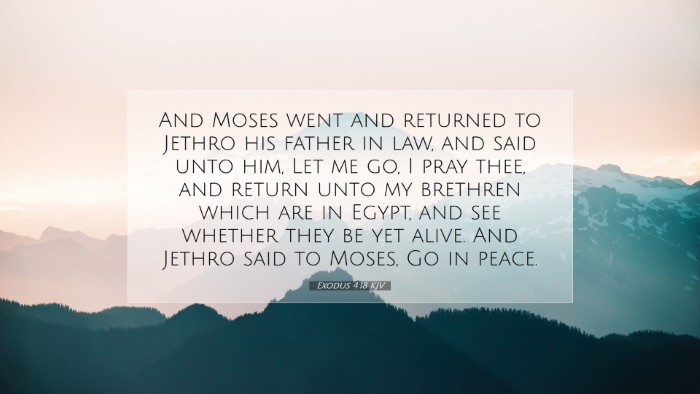Commentary on Exodus 4:18
Verse: "And Moses went and returned to Jethro his father-in-law, and said unto him, Let me go, I pray thee, and return unto my brethren which are in Egypt, and see whether they be yet alive. And Jethro said to Moses, Go in peace."
Introduction
Exodus 4:18 is a pivotal moment in the narrative of Moses' calling and mission. It reflects the complexity of human relationships, the weight of divine calling, and the necessity of faithfulness in carrying out God’s commission. This commentary draws from the insights of renowned biblical scholars to unpack the significance of this verse.
Moses' Obedience and Initiation of His Mission
Moses’ return to Jethro signifies his respect for authority and the importance of familial relationships. Matthew Henry highlights that Moses does not act impulsively; rather, he recognizes the need to seek Jethro's permission as a testament to his character and respect for his father-in-law.
- Humility in Requests: Moses approaches Jethro with humility, understanding the weight of his departure from Midian. He does not presume authority over his father-in-law, demonstrating a valuable lesson in leadership.
- Intent of Return: The purpose of his return is articulated clearly—to check on the well-being of his brethren in Egypt. This reflects Moses’ growing sense of responsibility and care for his people, aligning with God’s heart for Israel's suffering.
The Role of Jethro
Jethro’s response to Moses illustrates wisdom and understanding. Albert Barnes points out that Jethro’s consent showcases the right attitude of leaders and mentors, allowing those under their guidance to pursue divine missions. Jethro’s brief statement, "Go in peace," indicates his blessing and acknowledges the divine call upon Moses' life.
- Mentorship: Jethro serves as a crucial mentor in Moses’ life, guiding him not only in practical matters of daily living but also in spiritual discernment.
- Peace and Assurance: The peace in Jethro's words can be seen as a sign of divine endorsement, offering Moses assurance as he embarks on his challenging path.
Theological Implications
This verse provides rich theological insights related to calling, community, and the providence of God. Adam Clarke emphasizes the providence of God in orchestrating events that lead to both Moses’ preparation and the impending deliverance of Israel.
- Divine Call and Human Response: The interaction between Moses and Jethro underscores the importance of community in responding to God’s call. God often works through relationships and seeks the cooperation of individuals in His divine plan.
- Faithfulness to the Mission: Moses’ insistence on returning to Egypt reflects the necessity for believers to remain faithful to God's calling, even when facing fear or uncertainty.
Reflections on Leadership and Service
This passage also serves as an example of effective leadership principles, especially for those in ministry, including pastors and theologians. Moses’ journey demonstrates key attributes required for leaders:
- Seeking Guidance: Leaders must seek counsel and permission from those they respect, which can provide not only wisdom but also peace in their endeavors.
- Community Care: A leader should maintain a genuine concern for the needs and state of their community. Moses’ desire to learn about the wellbeing of the Israelites illustrates this critical leadership trait.
Conclusion
Exodus 4:18 serves as a profound reminder of the importance of obedience, respect, and community engagement in the life of faith. As Moses prepares to lead his people out of bondage, his final connection with Jethro reinforces the notion that God's missions involve both divine enablement and human collaboration. For pastors, scholars, and students, this verse encapsulates the essence of God-ordained leadership and the ongoing journey of faithfulness to divine calling.


